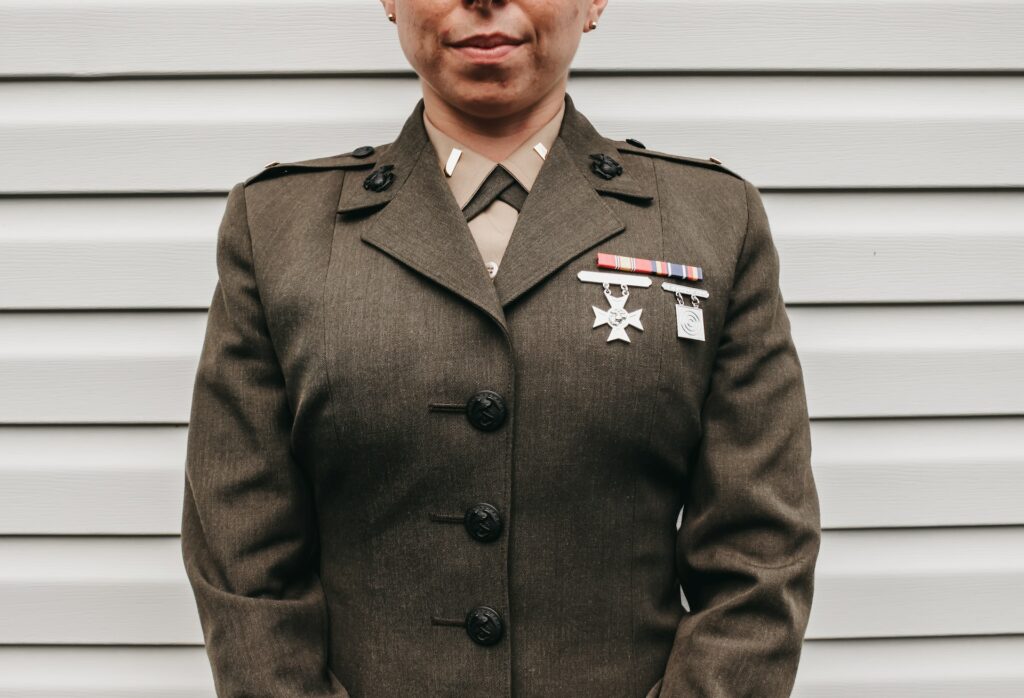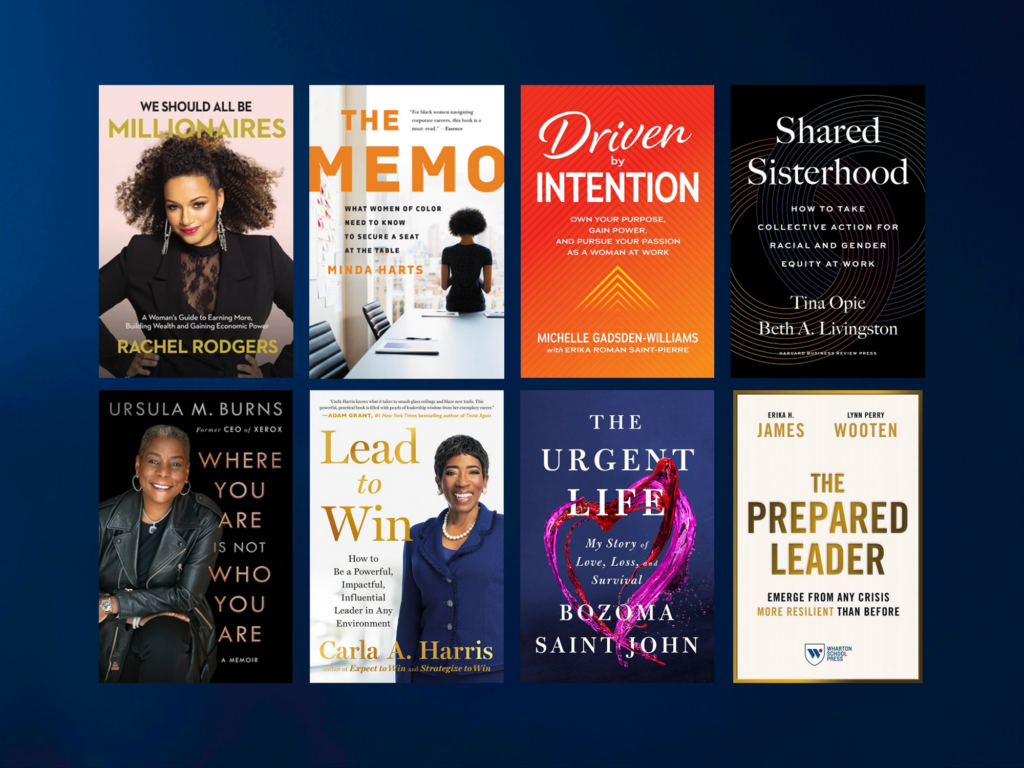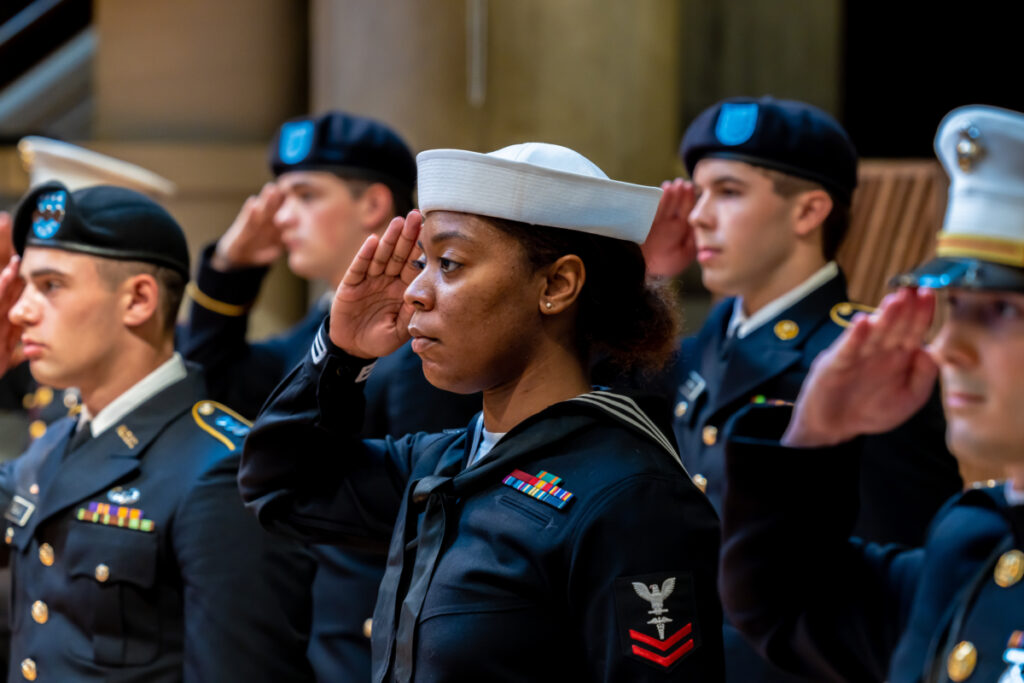From Service to Success: Celebrating National Hire A Veteran Day

Every year, approximately 200,000 men and women leave U.S. military service and return to life as civilians, a process known as the military to civilian transition. It’s full of uncertainty and sometimes riddled with self-doubt and corporate misconceptions that create a barrier to entry. A study by the Society of Human Resource Professionals indicates that 55% of veterans view employment as a significant hurdle during their transition. But getting it right when it comes to hiring veterans is not just a moral imperative, it’s good for business. That’s why this July 25 on National Hire a Veteran Day, MBAchic is amplifying veteran voices and highlighting ways companies can prioritize veteran hires.
About Hire a Veteran Day
National Hire a Veteran Day was established in 2017 and founded by Dan Caporale, Marine Corps Veteran and founder of the national non-profit organization Hire Our Heroes (HOH). By connecting the military community—service members, military spouses, and veterans—with American businesses, HOH is committed to create economic opportunity and a strong and diversified workforce.
Beyond raising awareness about civilian employment for service members and veterans after their military service, it’s also a call to action for those who hire and those who apply. Recent data shows positive strides for veteran employment. In 2022, the unemployment rate for all veterans stood at 2.8%, which was lower than the rate for nonveterans, according to the latest data from the Bureau of Labor Statistics. This is a significant trend for the veteran community, with both male and female veterans experiencing a decline in unemployment rates after years of negative employment news. Before last year, that unemployment estimate had not been below 3% for two consecutive months since May 2019.
The BLS report found that nearly one in four veterans (23%) are employed in local, state or federal government jobs, about the same rate as 2020. For comparison, only about 13% of non-veterans hold salaried government posts. Other industries with high veteran employment include education, health services, manufacturing, and business services jobs.
Why Hire a Veteran
Retired U.S. Army Lieutenant General Ken Keen, Associate Dean for Leadership at Goizueta is spearheading the business school’s new Master in Business for Veterans program which launches this August. He tells MBAchic that supporting veterans to help them discover passion and purpose after military service is hugely valuable.
“Transitioning out of the military is hard, whether you are an enlisted member, a sergeant, a command sergeant major with 20 years of military experience, or a junior or senior grade officer up to general officer. It’s very difficult. The army, where I come from, and all our military services provide a sense of purpose, and you have volunteered for that purpose. You’re surrounded by others who have signed up for that as well. You’ve sweated and, in many instances, bled with them while pursuing your military career and service,” General Keen says.
His message for corporate recruiters is simple, “Hire veterans because they can have a tremendous impact on your businesses, no matter where you place them,” General Keen says. “It’s important to understand that veterans don’t want a handout; they simply appreciate a hand up, an opportunity.”
Employers and HR personnel should consider this during the interview process because as General Keen notes, not everyone has individual experience with conducting veteran interviews.
“Sometimes veterans struggle to effectively communicate how their military skills and experiences can directly apply to a particular business. For those hiring or interviewing veterans, I urge you to show them some grace and try to delve deeper into their experiences,” General Keen says. “Don’t dismiss them if it doesn’t immediately connect; take the time to fully grasp the valuable skills that a veteran can offer and how they could be beneficial to your business.”
Georgia Tech Scheller College of Business’s Assistant Dean of Non-Degree Education Coogan Perrin served as an Air Force Cyberspace Engineering Officer before deciding to pursue her MBA at Goizueta Business School. She says she prepares for the challenge of bridging a military / civilian jargon-gap by always modifying her resume to reflect her work when she’s researching a new role.
“This helps recruiters and hiring managers understand more specifically the activity and impact I had in my military career and how I can contribute to the mission of the company I am applying for,” Coogan tells MBAchic. “Being able to articulate your military story, in a meaningful way that someone with no military background can understand, is key. Every employer I have interacted with shared that my military background was a positive attribute and something they wanted to hire for. Military members are known to be calm under pressure, reliable, hardworking, and dedicated. Companyies want to hire veterans, so I always do my homework to make it easy for them to offer me the position.”
Veterans agree that some of the biggest challenges that veterans face during their transition is understanding how their military experience translates into the private sector, then having the confidence to position themselves for success during interviews.
As a US Army veteran currently serving as a Field Artillery Officer in the National Guard, an MBA, and a professional consultant, Brianna Hughes tells MBAchic that grit is the number one trait all veterans share that helps them to excel in whatever professional path they choose.
“That’s honestly what I have found is something that I learned from experience in West Point in the Army that has been applicable as I’ve progressed in my military career but also as I’ve pivoted to business school, a civilian career and honestly just life, parenthood,” says Hughes. “That mental, physical and emotional resilience that is developed by constantly being challenged while simultaneously being an environment that compels you to overcome.”
“Veterans know how to work both in teams and as individual contributors. To be a great leader, you first must be a good follower. All veterans understand this and have lived this through their military experience,” Coogan explains. “Veterans are used to working with people from all walks of life and know how to motivate others. This is incredibly valuable in today’s workforce. As automation and outsourcing continues to grow across market segments, having leadership and members of the team that know how to inspire and work with others is more important than ever before. Good leaders are grown through experience, and veterans have this in spades.”
Companies Supporting Vets
Developing effective practices for hiring veterans is a process that can take time. Veterans Job Mission, a coalition of more than 300 companies, has collectively hired over 900,000 veterans and military spouses, with a goal to hire two million U.S. military veterans and 200,000 military spouses by 2030. Through years of trial and error since 2011, hundreds of organizations have helped to develop leading practices to build or enhance a veteran hiring program. Here are three key steps the VJM suggest to serve as a foundation for successfully sourcing veterans:
Engage your HR representatives and recruiters to help identify areas where military talent would serve as high fit. Work with recruiters and hiring managers to tailor these job descriptions and state, when appropriate, that relevant military experience qualifies.
Leverage your current veteran employee population and collaborate with them as ambassadors. Marketing that you are creating a military-friendly work environment is important to attract top talent. You can also partner with them to review job descriptions and relevant marketing materials.
Connect with the military installations that are located near your company. Build relationships with transition offices and determine if there is a pipeline of talent that fits your company’s hiring needs. Utilize the resources that the bases offer for transitioning military members.
Jamie Dimon, Chairman and CEO of JPMorgan Chase & Co (one of the leading companies in the coalition) describes the military as a great place to find talent.
“[In the military] they learn how to show up. How to be a team. How to respond. If they don’t do their job, someone could be seriously injured. They learn logistics, communication, sharing ideas, analyzing reports, cybersecurity. Give them a chance,” Dimon says.
Companies of all sizes can make a difference in the veteran community – not just on National Hire A Veteran Day, but throughout the year. As a result of their commitments, Capital One earned the 2023 Military Friendly Spouse Employer designation, an award for companies committed to hiring and supporting military spouses in the workforce. Capital One Director of Recruiting Val Jeffries is a veteran herself who serves on the National Leadership Team of Capital One’s Military Business Resource Group, Salute. She tells MBAchic that Capital One deeply values the service and sacrifice of veterans, active military personnel and their families.
“We stay committed to hiring and helping prepare transitioning service members, Veterans and military spouses for new jobs because we look for talent with a broad range of experience and individuals from all backgrounds knowing that bringing together associates with varied perspectives will help us solve our customers’ challenges faster and better,” says Jeffries.
Capital One is a leading partner with the U.S. Chamber of Commerce Foundation’s Hiring Our Heroes program. Through this partnership, Capital One hosts transitioning veterans and their spouses through intentional fellowship programming by placing them into corporate roles for 11 weeks (or 6 weeks for military spouses) with the opportunity for full-time hire at the conclusion of the program.
Hiring Resources
The VA has created a Veterans Employment Toolkit designed to help those interested in employing vets. The toolkit includes information on government subsidies that can be used to offset the salary of a new hire, assistive and adaptive technology, how to interpret a veteran’s “non-pay work experience,” and information on VA incentives that may be offered to certain companies for hiring qualified veterans. The VA toolkit also includes information about Department of Labor programs that incorporate online training and other resources for those who want to hire from America’s ever-growing pool of military members and vets.
The Disabled Veterans National Foundation even designed a tool for employers looking to hire skilled and talented veterans or military members. The Civilian to Military Occupation Translator can be used to understand what military experience to look for by matching a job opening to military careers that use similar skills.
By embracing the unique skills and experiences of veterans, businesses of all sizes can create an environment of inclusivity, innovation, and success. As we commemorate this special day, let it serve as a powerful reminder that supporting our veterans through meaningful employment opportunities is not just a one-time gesture but an ongoing commitment to building a stronger and more resilient business community. Through conscious efforts, we can celebrate, empower, and hire our veterans, ensuring they have the chance to thrive in the civilian world and achieve their fullest potential.

From Service to Success: Celebrating National Hire A Veteran Day
Photo from Hannah Skelly







